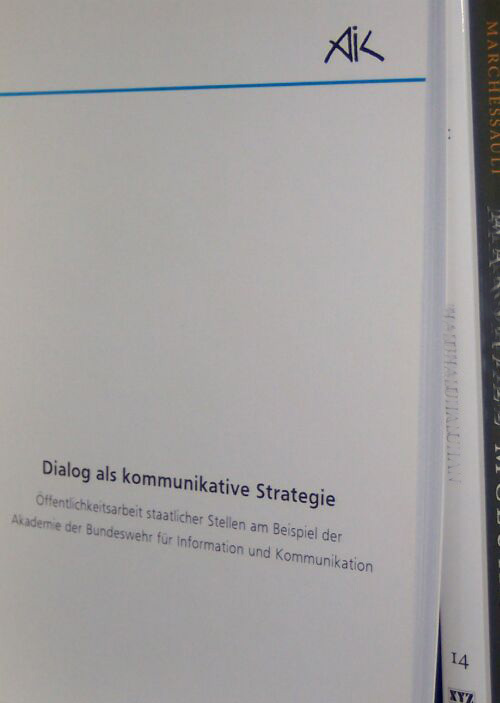 (Cover shot © 2007 research worldwide) |
Oliver Zöllner: Dialog als kommunikative Strategie. Öffentlichkeitsarbeit staatlicher Stellen am Beispiel der Akademie der Bundeswehr für Information und Kommunikation. Waldbröl: AIK, 1993, 166 pages |
About this book:
In the early 1990s, an era of new uncertainties, many of them affecting public discourse on the future and the very raison d'être
of the armed forces, AIK's objectives were to search for new ways of engaging target groups in symmetrical dialogues with the military.
Unlike previous military public relations (PR) concepts that basically focused on persuasion and one-way communication, AIK developed
a dialogic PR model which inherently drew on thinkers such as Jürgen Habermas and his seminal work, "Theory of
Communicative Action" (1981). In line with this theory, AIK's PR concept, or main strategy, was decidedly un-strategic
in that it did not seek to persuade target groups but rather attempted, first and foremost, to negotiate mutual trust and understanding between
dialogic partners - a key feature of discursive public sphere and democracy. From the beginning, the Academy was aware that any dialogic relationship of this kind would be
fragile and demanding, including the risk of 'unsuccessful' communication - an open attitude that is remarkable for any military institution.
This book by Oliver Zoellner analyzes the Academy's PR strategy, its sources and underlying motifs. The study is based on extensive document
analyses, on-site research and interviews with commanders and staff.
Home ¦ CV ¦ Courses ¦ Publications ¦ Data Protection ¦ Credits